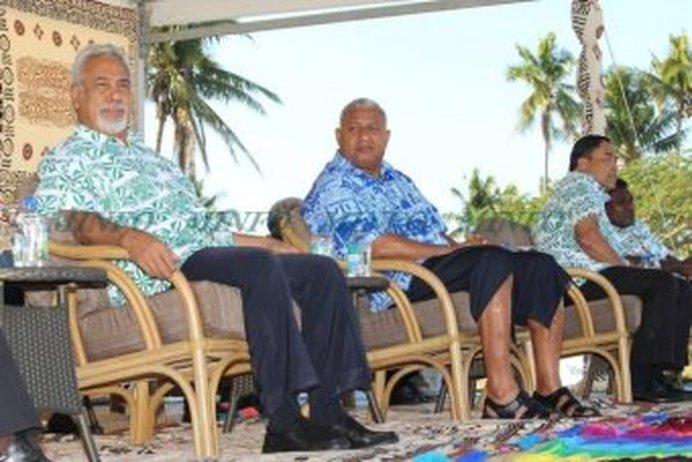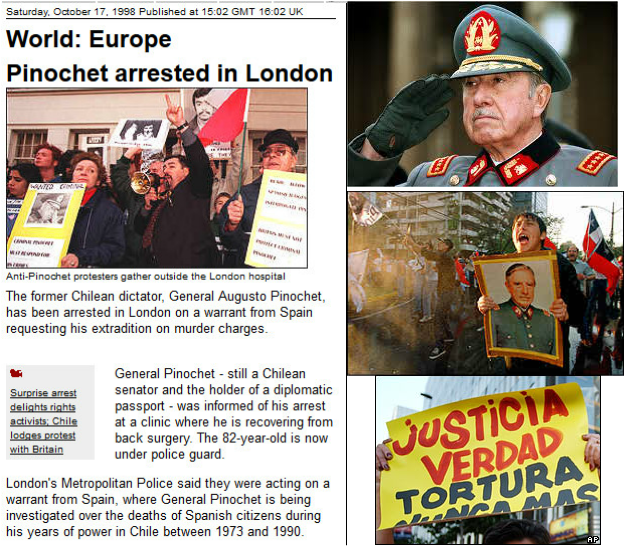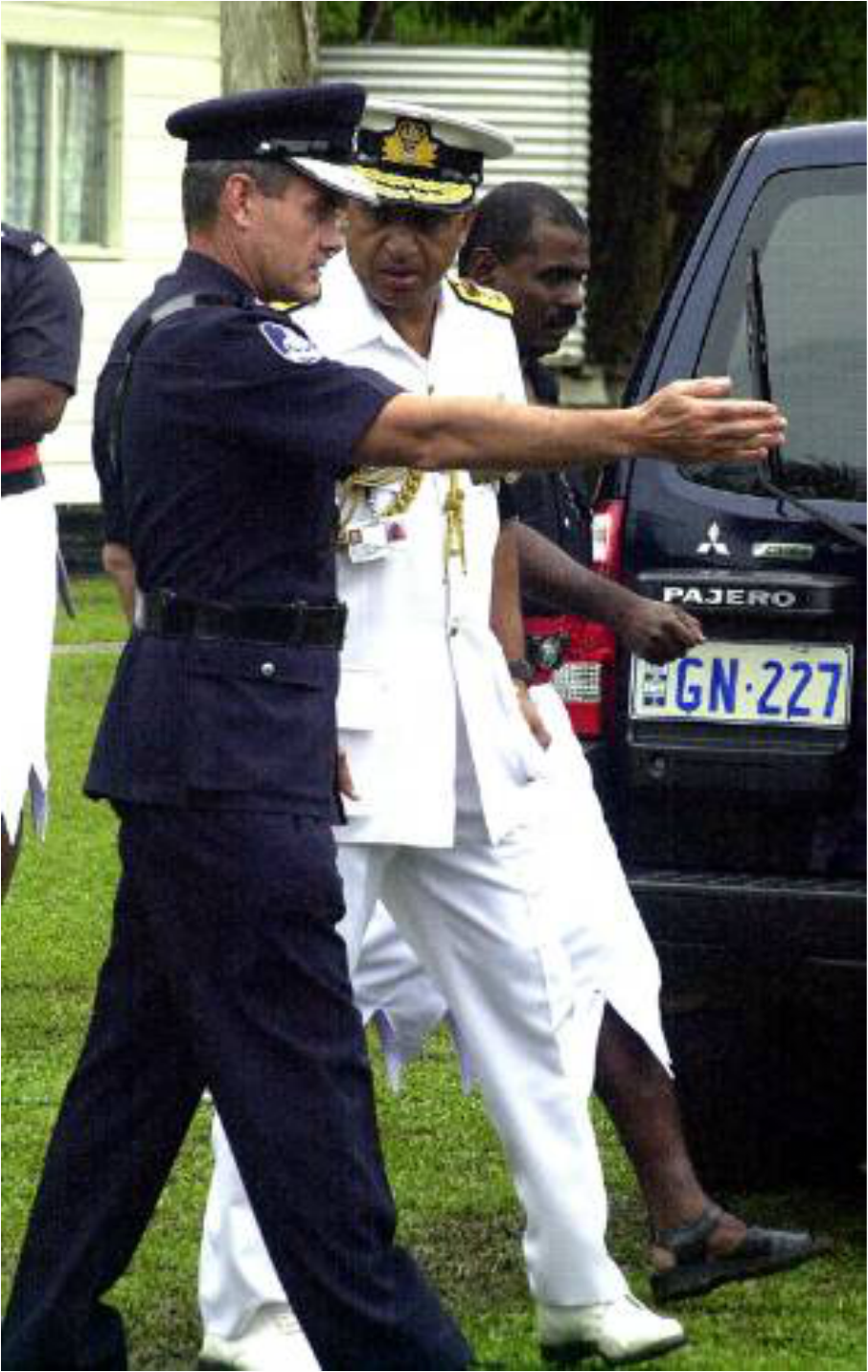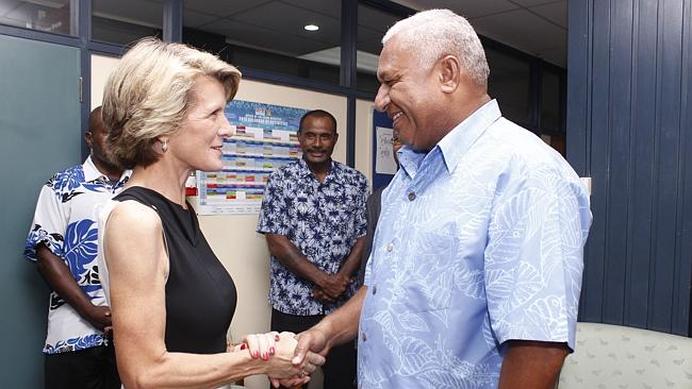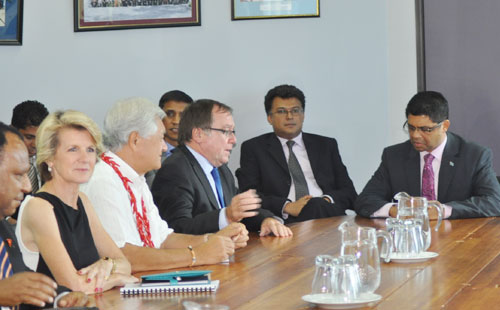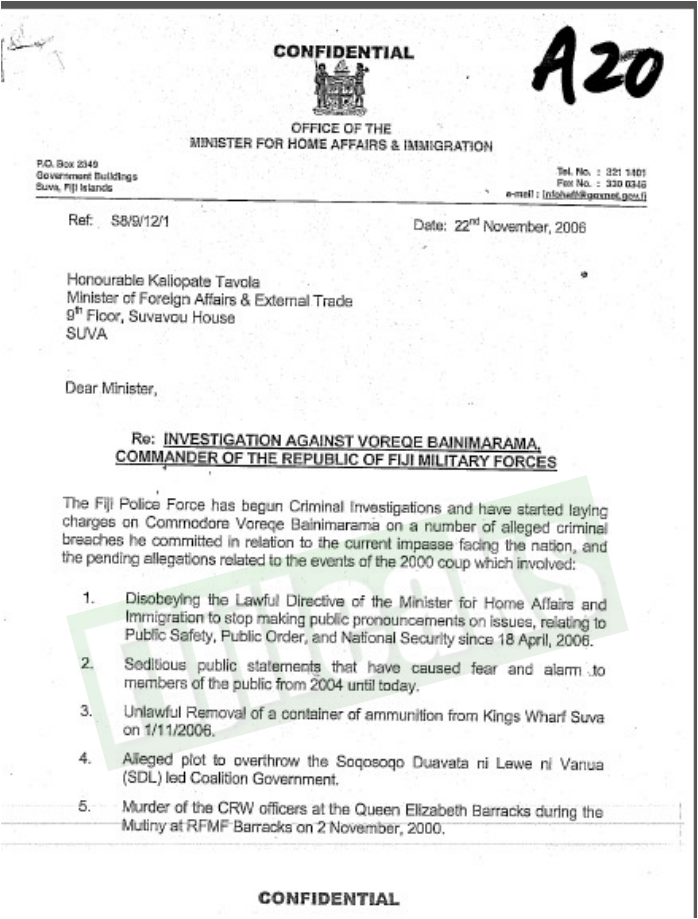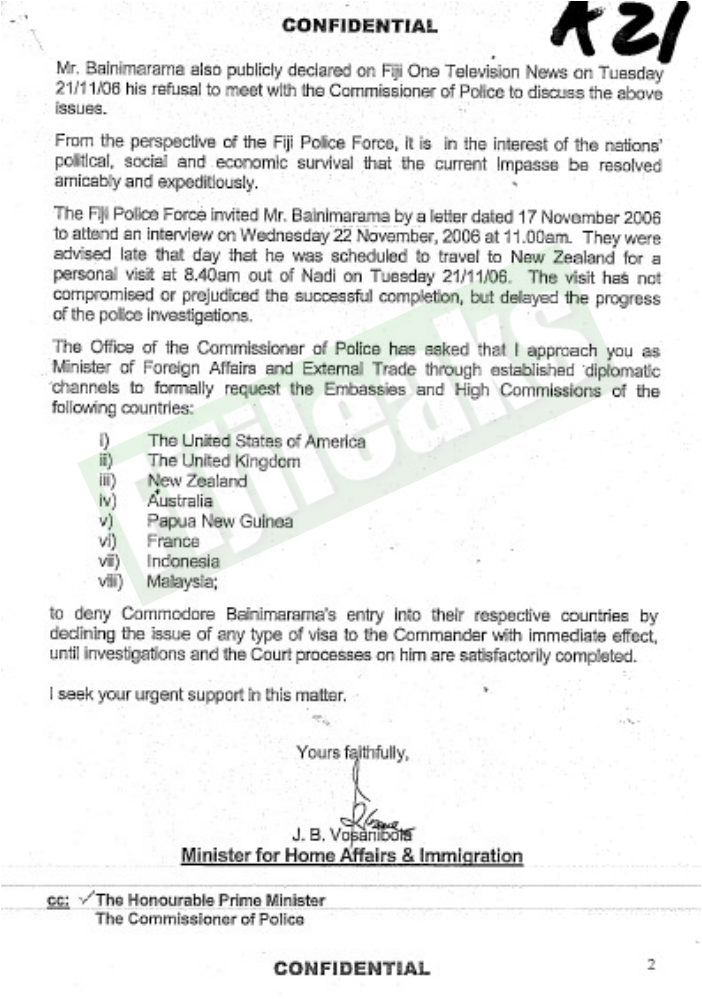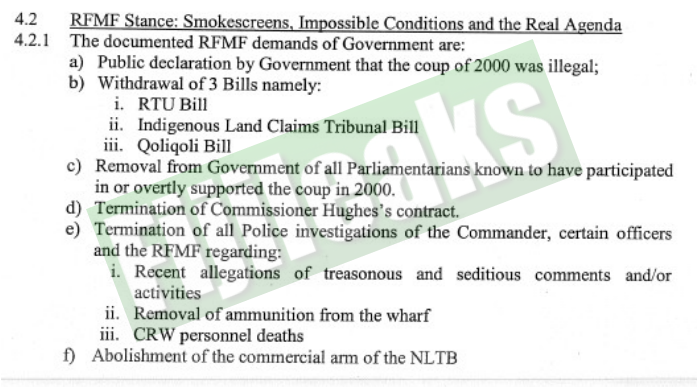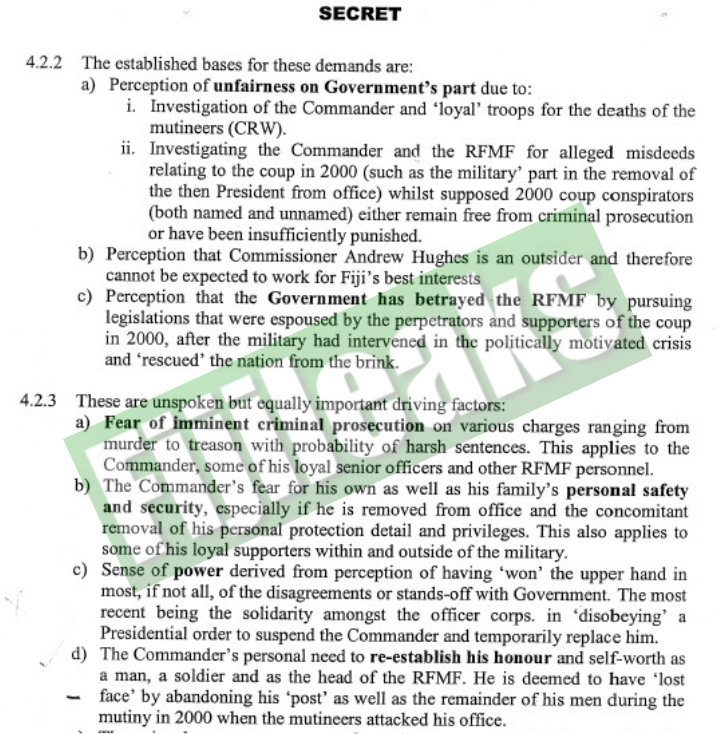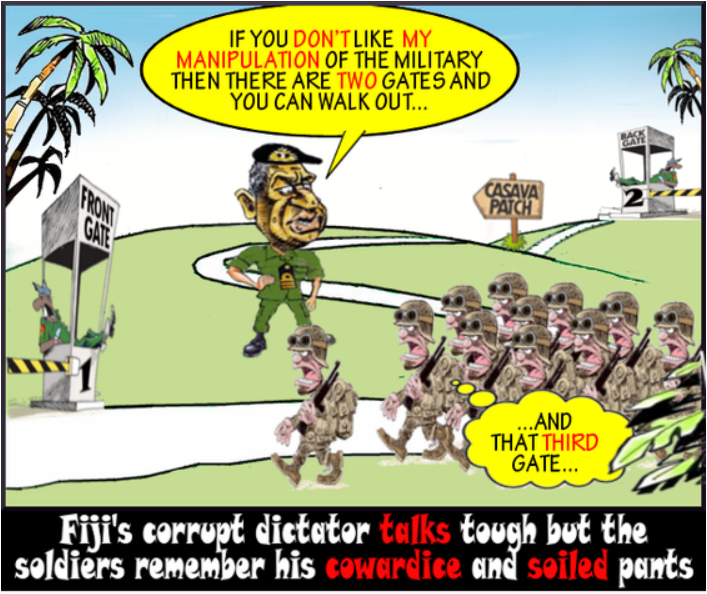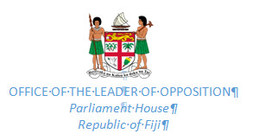
[50/4/2015]
April 9, 2015
Opposition Leader Ro Teimumu Kepa today apologized to Australia and New Zealand and the Pacific Island Forum members for the inappropriate and childish behavior of Prime Minister Bainimarama
In a statement issued today, Opposition Leader Ro Teimumu Kepa apologized to Australia, New Zealand and the Pacific Island Forum members for the inappropriate and childish behavior of Prime Minister Bainimarama with respect to Australia and New Zealand’s membership of the Pacific Islands Forum.
Ro Teimumu said it was important for the Pacific Islands Forum Leaders, in particular Australia and New Zealand to see the Prime Minister’s actions for what it is. It is nothing more than a vendetta against the Pacific Islands Forum members in particular Australia and New Zealand for not supporting his 2006 coup. That is what is behind his behavior.
The Pacific Islands Development Forum is designed to ‘split’ the members of the Pacific Island Forum and provide Frank Bainimarama with the regional leadership platform he desperately seeks. He is preying on some of the more vulnerable Pacific Island nations who depend on Fiji to join it and hopefully shift support away from Australia and New Zealand.
Ro Teimumu said like any ‘spoilt child’ when they don’t get their way, they get the sulks and that is exactly what the Prime Minister is doing. He’s having the sulks.
Ro Teimumu said that Australia and New Zealand were founding members of the Pacific Islands Forum, at that time the late Ratu Sir Kamasese Mara who was instrumental in the Forum’s establishment said to other Island leaders, that Australia and New Zealand were developed nations who were very much a part of our region and could play a key role in each of the Island members development. Time has proven Ratu Mara absolutely correct.
Certainly in Fiji’s case Australia and New Zealand jointly contribute approximately 66% of our total visitor arrivals every year and more than $800 million of our annual $1.3 billion tourism revenue. This is what good neighbors do. Ro Teimumu said both countries also have long historical ties with Fiji in times of war and peace. In times of natural disaster, these two countries are always the first with necessary assistance.
The Opposition Leader said that the leaders and people of Australia and New Zealand should know that the behavior of Prime Minister Bainimarama, his lack appreciation for our common history and absence of common courtesy is not reflective of the views and wishes of our people.
Ro Teimumu said the Prime Minister’s utterances are nothing more than a reflection of his self serving, confused thinking, and lingering anger towards Australia and New Zealand for standing up to him as the usurper of our democracy.
Fijileaks: Bainimarama is UNGRATEFUL to New Zealand for not locking him up for seven years; also lesson for New Zealand and Australia that SHAKING HANDS WITH A DICTATOR only emboldens a BULLY!
"Being passive with bullies only encourages them. An arrest abroad might be the only way to enforce a criminal charge and remove the Bainimarama thorn," US Ambassador Larry Dinger
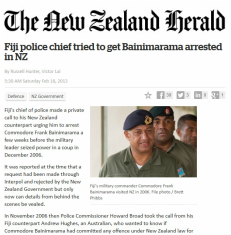
By Russell Hunter and Victor Lal
Fiji's chief of police made a private call to his New Zealand counterpart urging him to arrest Commodore Frank Bainimarama a few weeks before the military leader seized power in a coup in December 2006.
It was reported at the time that a request had been made through Interpol and rejected by the New Zealand Government but only now can details from behind the scenes be revealed.
In November 2006 then Police Commissioner Howard Broad took the call from his Fiji counterpart Andrew Hughes, an Australian, who wanted to know if Commodore Bainimarama had committed any offence under New Zealand law for which he could be arrested.
Teams of police officers from both forces worked over a weekend and agreed the future dictator could be charged in New Zealand with perverting the course of justice in a foreign jurisdiction.
The planned charge related to remarks made by Commodore Bainimarama in New Zealand regarding an investigation into his alleged sedition in Fiji.
Mr Hughes sent two senior officers - an assistant commissioner and a senior detective - to New Zealand to liaise in the planned arrest.
"Then Howard Broad had a change of heart," said Mr Hughes. "He said New Zealand Foreign Affairs preferred a political solution.
"I argued it was his decision as Police Commissioner as to who should be charged in New Zealand."
At the time Commodore Bainimarama was in New Zealand for his granddaughter's christening and the Foreign Minister at the time, Winston Peters, had taken the opportunity to broker talks between him and elected Prime Minister Laisenia Qarase aimed at diverting Fiji's lurch towards a military takeover.
A day later, Mr Hughes received a call from Mr Broad.
"He sought my assurance that no NZ citizen would be endangered in Fiji as result of an arrest," said Mr Hughes.
"Of course I would do all in my power to protect all the people in Fiji but a blanket assurance of that kind was not possible. It would be like me asking him for a similar assurance covering all Fiji people in New Zealand. It wasn't possible to give him that.
"In the end, Mr Broad told me, 'Well, we're not going to arrest him."'
Mr Broad, now retired, told the Weekend Herald yesterday in a written statement that he remembered the call well.
"I remember it as a highly unusual request to consider an allegation against the Chief of Defence Force of a neighbouring country's properly constituted Government.
"I remember giving this decision a lot of consideration because it contained complex operational, legal and policy issues. I made the decision but I took a lot of advice. I remain comfortable with it."
He said some aspects of Mr Hughes' explanation did not accord with his recollection but he did not specify what they were.
In Suva, the Fiji police force had been awaiting an opportunity to arrest the commodore on the sedition charge but were unable to penetrate his heavily armed personal security detail - rarely less than 12-strong at any given time.
"I had earlier taken a brief of evidence to the DPP," said Mr Hughes, "and it was agreed that there was a case to answer on a sedition charge.
"We wanted to arrest and charge Commodore Bainimarama but he was permanently covered by heavy security. I was very keen to avoid an armed confrontation between the police and the military. So we waited."
As Prime Minister Qarase waited at Suva's Nausori airport to board a New Zealand Air Force VIP jet to take him to the Peters-brokered talks in Wellington, he was surprised to be joined by Mr Hughes, who then explained that the arrest plan was unlikely to come to fruition. Mr Qarase was shocked.
The Fiji Police Commissioner boarded the flight and in Wellington he met a deputy secretary for foreign affairs but was again told the New Zealand Government's position was that a political or diplomatic solution was preferred.
Aware that the police were ready to arrest him in Suva, Commodore Bainimarama had made it one of his many conditions for any settlement that the police commissioner would have to go.
Mr Hughes had, a week previously, sent his wife and sons to Australia having received credible information that they could be targeted by a military snatch squad.
In Wellington, he sought consular advice which was that he should not return to Fiji. He never did.
Mr Hughes also considered the safety of his own loyal officers who would try to protect him from military arrest.
The 2006 coup was the commodore's fourth attempt.
In 2000 during the negotiations that ended the Speight hostage crisis he suggested that the military should run the country for up to 50 years but Speight - and the president - would have none of it. In 2004 and again in 2005 he planned to take over the Government but his senior officers refused to commit treason.
All were sacked.
By December 2006 it was now or never for Commodore Bainimarama. It was widely agreed amongst informed observers of the events of 2006 in Fiji, including the diplomatic community, that without Commodore Bainimarama the RFMF would be rudderless.
Had Commodore Bainimarama been arrested in New Zealand the Fiji military would have been unable and unwilling to proceed with the removal of the Qarase Government.
The then US ambassador to Fiji, Larry Dinger, summed it up when he told his masters in Washington in a cable leaked by WikiLeaks regarding the New Zealand arrest plan.
"Being passive with bullies only encourages them. An arrest abroad might be the only way to enforce a criminal charge and remove the Bainimarama thorn," he reported.
Labour's foreign affairs spokesman Phil Goff, who did not deal with the issue, could not confirm Mr Hughes' account.
However, he could understand why no arrest was made, saying such a course of action would mean a country lost its credibility as a mediator for dealing with crises.
"I scarcely think you were going to lure a person here under false pretences only to arrest him. That would be seen as an ambush and bad faith and it wouldn't have resolved the situation within Fiji. " Fijileaks: Goff forgot that the Chilean dictator General Augusto Pinochet was arrested in a hospital bed in London in 1998
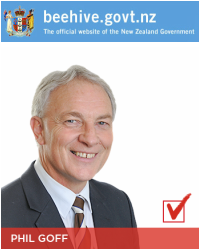
Phil Goff, 3 March, 2000
Goff disappointed the Pinochet not brought to trial
Foreign Minister Phil Goff said today (3 March 2000) that he regrets the fact that the former Chilean dictator, General Pinochet, has not been brought to trial. Mr Goff said that he accepts the principle that a person assessed as medically unfit cannot be brought to trial. "However, the fact that General Pinochet may now never be held to account will deeply disappoint the families of those who were victims of savage human rights abuses following the military coup in Chile in 1973. They understandably will feel that justice has not been done. Ironically the judicial system has been kinder to Mr Pinochet than his regime was to its many victims. Nevertheless, the International community can at least take heart that the principle has been laid down that dictators who are responsible for human rights abuses are no longer beyond the reach of the rule of law. The fact that he was arrested and that his claim of immunity was rejected has taken us a lot further along the road towards curbing human rights abuse around the world. It will reinforce the message that leaders whose regimes violate human rights will be vulnerable to international legal action."
